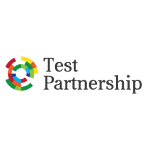The Enneagram, a powerful personality framework, offers valuable insights into nine distinct Enneagram types, representing different motivations, strengths, and areas for growth. By delving deeper into each Enneatype, HR professionals can gain a comprehensive understanding of employee behaviors and tailor their approaches to decision-making and conflict resolution. This article explores how HR professionals can leverage the Enneagram to enhance these crucial aspects of their roles and foster a harmonious work environment.
Understanding the Enneatypes
Each Enneatype is characterized by a core motivation that influences an individual's thoughts, feelings, and behaviors. While it's important to avoid generalizations, having a foundational understanding of the Enneatypes can help HR professionals navigate the complexities of workplace dynamics.
The Perfectionist (Type 1):
Type 1 individuals strive for excellence and are driven by a strong sense of right and wrong. They are self-disciplined, detail-oriented, and hold high standards for themselves and others. In HR decision-making, it is important to provide clear guidelines and opportunities for continuous improvement, as Type 1 employees are motivated by a sense of responsibility and ethical conduct.
The Helper (Type 2):
Type 2 individuals are empathetic, supportive, and eager to assist others. They thrive on building connections and nurturing relationships. HR professionals can leverage the strengths and emotional intelligence of Type 2 employees by creating opportunities for them to contribute to team-building initiatives and employee support programs. Acknowledging their contributions and providing avenues for personal growth and development fosters a nurturing work environment.
The Achiever (Type 3):
Type 3 individuals are ambitious, goal-oriented, and driven by a desire for success. They excel at multitasking and are motivated by recognition and advancement. HR professionals can harness the industriousness of Type 3 employees by providing opportunities for growth, recognizing their achievements, and challenging them with meaningful projects. Supporting their drive for success can lead to both individual and organizational growth.
The Individualist (Type 4):
Type 4 individuals are introspective, creative, and driven by a need for authenticity. They have a keen eye for aesthetics and value self-expression. HR professionals can support Type 4 employees by fostering an inclusive work environment that celebrates individuality and creativity. Recognizing and valuing their unique perspectives and providing outlets for creative expression can lead to innovation and fresh ideas within the organization.
The Investigator (Type 5):
Type 5 individuals are analytical, curious, and possess a thirst for knowledge. They excel in research-oriented roles and value independence. In HR decision-making, it is important to provide Type 5 employees with opportunities for learning, professional development, and intellectual stimulation. Creating a work environment that encourages autonomy and respects their need for privacy allows them to thrive and contribute their expertise.
The Loyalist (Type 6):
Type 6 individuals are loyal, committed, and driven by a need for security and certainty. They excel in roles that require attention to detail and risk assessment. HR professionals can build trust with Type 6 employees by promoting transparency, offering clear communication channels, and emphasizing job security. Recognizing their dedication, involving them in decision-making processes, and providing a sense of stability cultivates loyalty and fosters a harmonious work environment.
The Enthusiast (Type 7):
Type 7 individuals are adventurous, spontaneous, and optimistic. They thrive on variety and seek opportunities for excitement and new experiences. HR professionals can engage Type 7 employees by providing a diverse range of challenging assignments, promoting a positive work culture that values creativity, and encouraging innovation. Having high extraversion, recognising their need for flexibility and outlets to explore new ideas enhances their productivity and job satisfaction.
The Challenger (Type 8):
Type 8 individuals are assertive, confident, and driven by a need for control. They possess strong leadership qualities and are often decisive and direct in their approach. HR professionals can engage Type 8 employees by providing opportunities for leadership, autonomy, and decision-making power. Recognizing their strengths as natural leaders and allowing them to influence organizational direction can lead to their full potential and contribute to the success of the organization.
The Peacemaker (Type 9):
Type 9 individuals are easygoing, supportive, and focused on maintaining harmony. They excel in roles that require diplomacy, mediation, and relationship-building. HR professionals can foster collaboration and conflict resolution by involving Type 9 employees in team-building activities, encouraging open communication, and providing avenues for their supportive nature to flourish. Recognizing their diplomatic skills and creating a peaceful work environment cultivates a sense of unity among employees.
Leveraging the Enneagram for HR Decision-Making and Conflict Resolution
- Tailoring communication and feedback approaches based on each Enneatype's preferences and communication styles.
- Designing conflict resolution strategies that consider the motivations, fears, and behaviors associated with different Enneatypes.
- Implementing team-building activities that promote understanding, respect, and collaboration among diverse Enneatypes.
- Providing Enneagram-based training and development programs to enhance self-awareness, empathy, and effective communication within the organization.
By embracing the insights offered by the Enneagram framework, HR professionals can enhance their decision-making processes, promote effective conflict resolution, and foster a harmonious work environment, which will often see employee turnover rate fall. Recognizing and valuing the diverse strengths, motivations, and perspectives of each Enneatype leads to a more engaged, productive, and cohesive workforce. With a comprehensive understanding of the Enneatypes, HR professionals can optimize their practices and create a workplace that nurtures the growth and well-being of all employees, ultimately contributing to organizational success.





